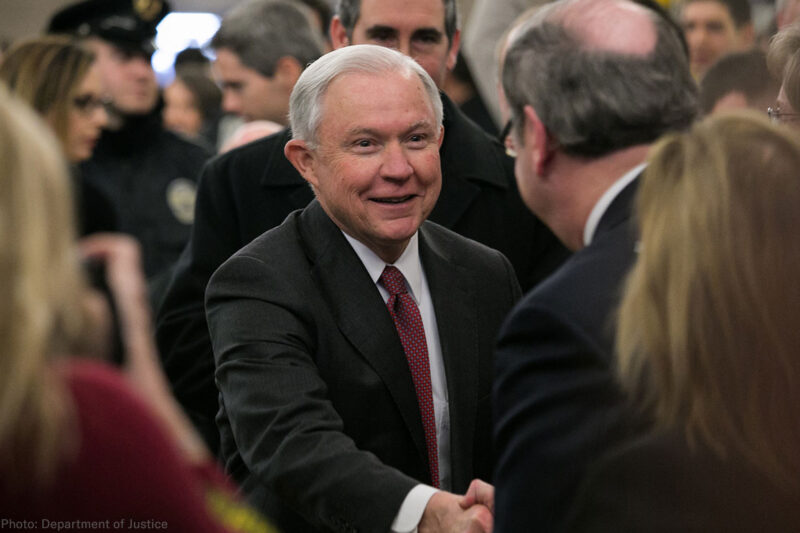
This piece originally appeared in .
In February, President Donald Trump took to Twitter once again to attack his attorney general, Jeff Sessions. He decried as “DISGRACEFUL” Sessions’s referral to the Justice Department’s inspector general of a Republican accusation that department lawyers had acted improperly in seeking a Foreign Intelligence Surveillance Act (FISA) warrant in October 2016 to eavesdrop on Carter Page, a Trump campaign aide. Trump insisted that Sessions should have investigated the charges himself. This was only the latest in a long line of public recriminations Trump has unleashed against his attorney general, in what New York Times reporters Peter Baker and Katie Benner aptly described as “an almost Shakespearean rift.”
The most recent complaint and the long-standing rift are curious for several reasons. First, Sessions was one of Trump’s earliest and most loyal supporters. He was the first member of the Senate to back Trump’s presidential campaign. He was also one of the very few willing to defend Trump in the immediate aftermath of the release of the Access Hollywood tape, on which Trump boasted that, as “a star,” he could “grab [women] by the pussy.” Asked by a reporter whether Trump’s actions would constitute sexual assault, Sessions replied, “I don’t characterize that as sexual assault. I think that’s a stretch.”
Second, Sessions’s referral of the allegedly improper FISA warrant to the inspector general was the correct course, as that office, which is responsible for investigating complaints against Justice Department employees, was designed to have a degree of independence, precisely to avoid the appearance of a conflict of interest.
Third, if the president disagrees with a decision the attorney general has made, he can simply pick up the phone; he need not resort to Twitter and share his concerns with 49 million followers. Yet Trump has repeatedly condemned his attorney general in public statements, often on Twitter.
Of course, the reason for Trump’s pique could not be clearer. He has admitted that he rues the day he selected Sessions as attorney general because of a single decision Sessions made: to recuse himself from the investigation of Russia’s interference in the 2016 presidential election. The attorney general’s job is to “protect” the president, Trump told The New York Times in December. But Sessions really had no choice in the matter, because he had personally met, while an adviser to the Trump campaign, with the Russian ambassador, and had lied about it to the Senate Judiciary Committee considering his nomination to become attorney general. That recusal, however, led to the appointment as special counsel of Robert Mueller, whose investigation Trump has been obsessed with ever since.
The fact that this decision, which Sessions was ethically bound to make, so colors the president’s view of his attorney general is all the more remarkable because Sessions is almost certainly the single most effective implementer of Trump’s vision in the entire administration. No cabinet member has been more diligent and single-minded in pursuing Trump’s policies.
Continue reading at .

